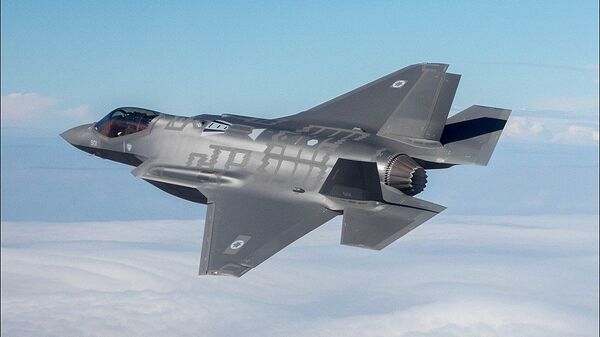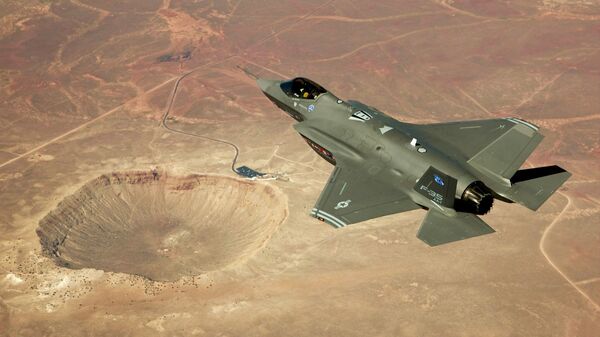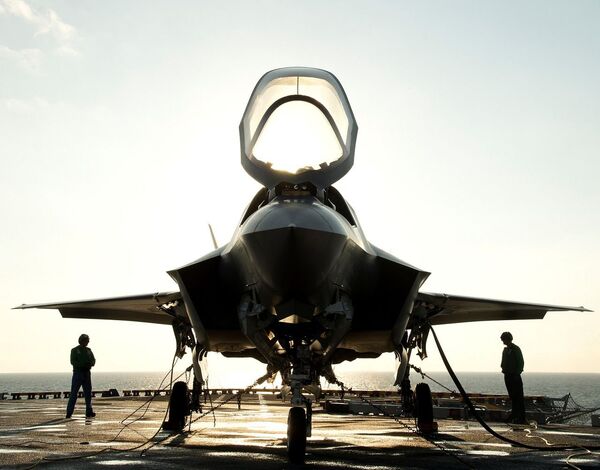Israel will be introducing several major modifications to the F-35 jets that it has ordered from US Lockheed Martin in a bid to make the aircraft fit the country's vision of how the fighter should operate, as well as to boost its capabilities and fix certain issues, The National Interest reported.
One of the key things to be changed by the Israelis, the magazine pointed out, is the fighter's on-board computer system. Tel Aviv wants to fit it with its own Command, Control, Communications and Computing (C4) system, which will be running "on top" of Lockheed Martin's own operating system. The latter has raised many issues with other countries ordering F-35s, as they want access to its open code in order to modify it. Lockheed Martin, however, has so far given them only limited access.
The jet's on-board computer assembles all information that it gathers from its sensors, including the locations of possible enemy troop deployments and installations, relaying it to other connected systems on the ground – to allied forces, air defences, or artillery. But not all systems are compatible with the F-35; hence, Israel wants to install a C4 precisely to be able to relay information from the jets’ sensors to its own military systems.
While installing a new system on the on-board computer is possible without major changes to the jet itself, other modifications that Israeli military has in mind would require major changes to the aircraft's design. Thus, Tel Aviv has managed to negotiate for the construction of around 30 F-35I Adir aircraft – a country-specific modification of the fifth generation jet.
While the entire list of changes for the jet as a part of the modification programme remains unclear, it will feature options to install third-party additions that are "plug-and-play", The National Interest indicated. One such addition is radar-jamming pods, which are expected to help the jet bypass opposing defences even after other countries figure out how to detect the F-35s.
Another change made to the F-35 as part of its "I" modification is the ability to use Israeli armaments, such as Python short-range air-to-air missiles or guided precision bombs from the Spice family.
Israel is also seeking to boost the operational range of the American jet by adding the ability to install external fuel tanks. Two such options are expected to be made available. One of these is non-stealthy tanks that can be discarded mid-flight in order to restore the ability to escape defences when necessary. Israel also wants to co-develop a fuel tank system with Lockheed Martin that doesn't hurt the jet's stealth capabilities or aerodynamics.
The list of changes to the F-35I could be longer, but apparently Israel wants to fine-tune the jet to meet its own regional needs, while possibly eradicating some of the downsides that have reportedly caused concern among the aircraft’s pilots.





